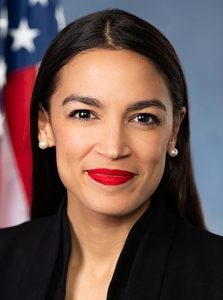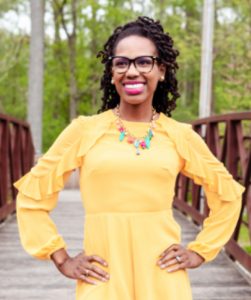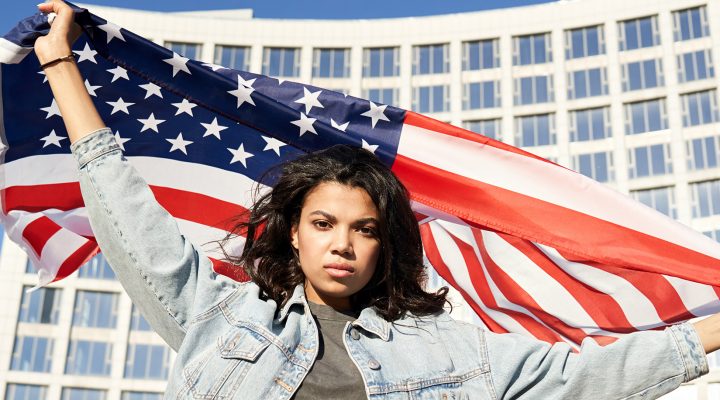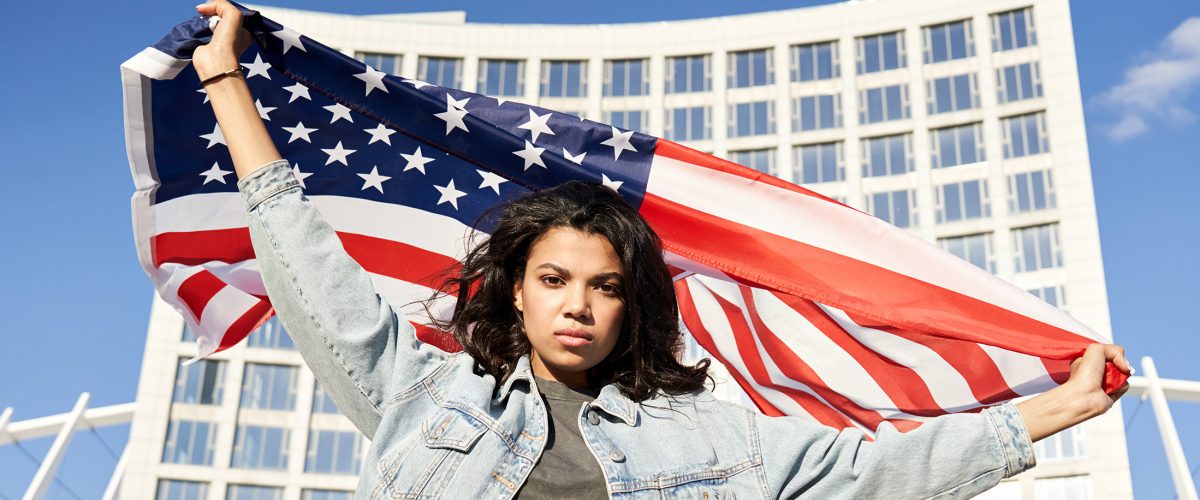Gauging the potential influence of Generation Z on the November election requires an understanding of the importance young Americans place on gender and diversity, said Melissa Deckman, CEO of Public Religion Research Institute.
“It’s really, really critical,” she said during an online panel discussion of her new book, The Politics of Gen Z: How the Youngest Voters Will Shape Our Democracy.
Just as important is the finding that young adult women are significantly more liberal and “fiercely feminist” than their male counterparts and are increasingly launching activist groups around issues such as climate change, gun violence and reproductive rights, she added. “They’re more likely to embrace the feminist moniker than older women, and certainly more than young men. And it’s those progressive values, those feminist values that are fueling them to participate at higher levels of politics than their male counterparts.”

Melissa Deckman
Research for the book took more than two years and featured a “mixed method” approach combining survey data, 15 focus groups, interviews with Gen Z activists and with participants in IGNITE conferences that train young women to become political activists and leaders.
The Aug. 27 webinar featured Deckman highlighting key findings in the book along with observations from two scholars and a journalist whose work focuses on gender, youth and politics.
The trends documented in the book stand in stark contrast to previous trends in American politics, Deckman said. “I have studied gender and politics for decades, and I know that up through the 20th century into the early 21st century, men overall were more likely to pursue politics than women.”
The presidency of Donald Trump galvanized women to become more directly involved in political activism.
But the presidency of Donald Trump galvanized women to become more directly involved in political activism, she said. “It was Trump’s blatant sexism, the way he spoke about women, the way he bragged about assaulting women. Those sorts of things left a huge impression on Gen Z women.”
A 2018 PRRI/MTV survey found young women already were becoming more politically engaged than young men by signing online petitions, volunteering for causes or donating money to a campaign.
“They realized sexism wasn’t a thing of the past,” Deckman explained. “Moreover, well into Trump’s presidency you have the eruption of the #MeToo movement, a movement that further cemented for young women the idea that gender equality was not guaranteed and they needed to do more to support or to fight for that equality.”
The overturning of Roe v. Wade in 2022 inspired greater interest in politics among young women who saw reproductive rights being taken away, Deckman said. “I was really struck by this new data showing animated young women here in ways we really haven’t seen before.”

Alexandria Ocasio-Cortez
Another catalyst for young adult women has been the political career of Alexandria Ocasio-Cortez, the 34-year-old Democratic Congresswoman from New York, an outspoken liberal unafraid to ruffle feathers on both sides of the aisle, Deckman said.
Ocasio-Cortez used her Democratic National Convention address to endorse Kamala Harris for president and to blast her Republican opponent: “Donald Trump would sell this country for $1 if it meant lining his own pockets and greasing the palms of his Wall Street friends.”
That’s just the kind of message that appeals to Gen Z’s, especially women, Deckman said. Ocasio-Cortez “had a very important effect on galvanizing young women who suddenly saw someone who looked more like them than all the old white guys they were sick of seeing involved in politics.”
A two-decade push to build self-esteem in girls and to promote women’s sports also have contributed to rising political engagement among young women, she said. “You had all these efforts to get young girls and young women involved in STEM careers, traditionally male careers, and you also had groups like IGNITE or Girl Up or Girl Scouts talking about the importance of civic engagement.”

Elena Moore
The rise of social media also can be credited with the development, she added. “Gen Z is the first generation that both produces and consumes its own media. … So, young people can find people who agree with them, like-minded citizens who not only are learning about politics but are taking what they learn and using it as a tool for organizing.”
Many young adults got their start in political activism through voter registration drives for the 2020 election, said Elena Moore, a National Public Radio reporter covering the 2024 election and youth politics.
“These people don’t resonate with a party the same as older generations,” she said. “They are fueled by issues like climate change and gun violence prevention. These have inspired movements among young people.”

Nadia Brown
Nadia E. Brown, professor of government and director of the Women’s and Gender Studies program at Georgetown University, pointed to Deckman’s research on young adult LGBTQ and Black women.
“Nonbinary people and queer folks and women of color in particular are really driving an ideological shift in how they’re thinking about politics and particularly party politics,” she said.
Deckman agreed: “It’s not just GEN Z men and women where you’re seeing these differences. Zoomers who identify as LGBTQ are also engaging in politics at higher levels.”

Kelly Dittmar
The generation also sees politics as a vehicle for compassion and helping their neighbors rather than a vehicle for promoting any ideology, said Kelly Dittmar, associate professor of political science and director of research at the Center for American Women and Politics at Rutgers University.
“Gen Z is very much against categories and categorizations and ‘I’m not going to vote for a woman because she’s a woman’ and ‘I’m not going to vote for a Black woman because she’s a Black woman.’”
While Harris’ candidacy has generated excitement among a lot of younger adults, Democrats cannot assume they will get the Gen Z vote due to party affiliation, Moore said.
“They are still, in some ways, up for grabs. We saw that President Biden suffered in the polls among young voters this year in part because of his response to the Israel-Hamas war. … These young people vote for Democrats often, but it’s more of an issue-based mindset rather than ‘vote blue no matter who.’”


